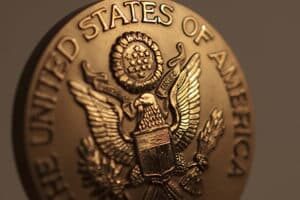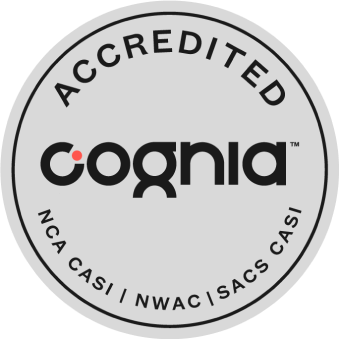An Honor of a Lifetime: An Interview With Our U.S. Presidential Scholar Semi-Finalists
To be named a U.S. Presidential Scholar is the highest honor that an American graduating high school senior can receive. Since 1964, students have been selected on three paths of accomplishment: general academics, an arts component, or a career and technical education component. Only a maximum of 161 scholars are selected for this award each year, and we are excited to announce that we have seven BASIS Charter School Seniors who have been named as semi-finalists in 2022.
I got the opportunity to speak virtually with five of these students: Tuba Balta, Katelyn Cai , Saathvik Chandupatia, Alexander O’Sullivan and Wesley Peng. We talked about what it takes to be a U.S. Presidential Scholar semi-finalist and how it feels to be nominated for such a prestigious honor.
Congratulations on being named a U.S. Presidential Scholar semi-finalist! Please introduce yourself.
Tuba: My name is Tuba Balta, and I go to BASIS DC.
Katelyn: Hi, my name is Katelyn Cai, and I am a senior at BASIS Scottsdale.
Saathvik: My name is Saathvik Chandupatia, and I have been going to BASIS Ahwatukee since 5th grade.
Alexander: My name is Alexander O’Sullivan, and I go by Alex. I am a senior at BASIS DC.
Wesley: Hello, I’m Wesley Peng. I’m from BASIS Scottsdale, a senior and I have been at BASIS since 5th grade. It’s been a long ride (laughs).
This is quite an honor, tell me a little about the process.
Tuba: It was similar to the college applications I was already doing. I remember there was a 6000-word essay on a picture that was meaningful to me.
Katelyn: I was sitting in the cafeteria and a friend asked, ‘Hey, did you end up getting nominated for the Presidential Scholar?’ and I said ‘Oh, nominations came out?’ It was actually very thorough with a series of five or six essays, and we had to submit all our extracurriculars and any awards we might have gotten. The final essay was very long, and it was based off of a picture prompt, so we could select anything that was meaningful to us or picture of ourselves doing an activity.
Saathvik: I applied because I would get to meet the president which would be pretty cool (laughs) It was a few essays where I talked about what really defined me in my school experience. There was one part where you had to send in an image, and then write an essay about what that image means to you.
Alex: I filled out an online application which consisted of many, many essays (laughs) and lots of writing talking about extracurriculars, volunteering, family background, and my defining moments in high school. I remember one essay question that asked what piece of art, song or movie demonstrates how you see the world.
Wesley: I learned a lot about myself. One of the most interesting essay prompts was to pick an object that means something to me and write an essay about it.
Can I ask what image or piece of art you used?
Tuba: I didn’t have just one picture that was meaningful, so the one I submitted was of the things on my desk. For example, there was a physics book, and there was a photo of my family, so I wrote about those things.
Katelyn: I used an image of myself when I was Miss Arizona’s Outstanding Teen. I picked a picture of me at a walk that was meant to raise money for a rare disease. I had run into these adorable little girls, and we took a photo together. The best part of my job was always interacting with kids, and to show them that, as women, they are capable of doing anything.
Saathvik: I have this condition called vitiligo and it makes parts of my skin lose their pigmentation. It was something that I cared for during a long period of my life, and it changed who I am. So, the image that I sent was the medication I used to symbolize that condition.
Alex: I chose a song by an artist Joey Bada$$ called “Land of the Free” which talks about the uniquely patriotic story of African Americans in the United States, and the complexities behind how we view history. It made me think about my purpose, and how to make this country a better place to live.
Wesley: A box of paints! I wrote about art which helped me to explore what I am passionate about.
Where were you when you found out you were a semi-finalist?
Tuba: I was at home. My dad got this email, and he was excited. I was in shock because I didn’t think I would get named a semi-finalist. (laughs).
Katelyn: I don’t think I even remember at this point, because there were so many decisions that were coming out the last month or so (laughs). It was obviously so exciting, but I was probably sitting at my computer here in this room!
Saathvik: I had just woken up. One of my other friends was also qualified to apply, and he texted me that he didn’t get it. I didn’t even know the email was out until he told me. I was just laying on my bed! (laughs).
Alex: I was in a meeting (laughs). Funny story… when I heard back from my first college, I was also in a meeting. I have become a pro at not reacting to certain news. I had the stoic face, but I was definitely excited.
Wesley: I found out when I was skiing with friends in Flagstaff at Snowbowl. When we got back to the lodge that’s when I saw it.
What would it mean for you to become a U.S. Presidential Scholar?
Tuba: It would mean more than I like to admit. I am a woman, in physics, my family is Turkish, and I am first generation. If I were to win, it would mean a lot to see myself be represented in the United States like that.
Saathvik: Just getting nationally recognized for all the hard work these last four years would be an honor.
Alex: Honestly, it would be up there with the best moments of my life and one of my proudest accomplishments. There was something about the U.S. Presidential Scholar application process that made me feel like I did some of my best work in terms of putting on paper exactly who I was.
Wesley: It would be an honor to represent our state and our nation in receiving this award. It would give me a platform to continue advocating for things I am very passionate about such as health equity and innovation that can help underserved populations.
Who at BASIS helped you on this journey?
Tuba: Definitely Maddie Krug, she’s our college counselor. I interacted with her the most this year. She has this tough love kind of thing going on, which is exactly what I needed. She gave me a lot of attention and boosted my confidence.
Katelyn: One is TJ Peacher, because he was my teacher junior and senior year and helped me learn to love subjects outside my comfort zone. I selected him as my distinguished teacher, so he is also getting recognition. The second teacher is my speech/debate coach, Scott Woods. He taught me a lot about resiliency and coming back from failure.
Saathvik: One is my college counselor, Ms. Jacobs. I got a lot of advice from her about writing essays. Another teacher would be my AP Seminar and AP Research teacher, Ms. Pankratz. She has helped quite a bit with these processes. She’s been a big help throughout these past couple years in applying to programs and colleges.
Alex: Chauncey Dennie, who is now at the University of Maryland, was my 9th grade Honors English teacher, and one of the few African American male teachers I have had. He had such a profound impact on me, and the way I view the world. But there were a lot of great people and teachers in my school who made it such a community. My U.S. History teacher Nicole Felmus from last year, my Latin teacher Mr. Watson, and all the administrators.
Wesley: Some of my closest mentors have been teachers. For example, I’ve met Mr. Peacher and Mr. Witz, both at BASIS Scottsdale, and they were instrumental in my development.
Now that you are graduating, what are your future plans?
Tuba: I will be going to University of Chicago and majoring in physics. I am focused on fusion energy and plasma physics. I want to create a carbon-free source of energy that can replace our current inefficient ones.
Katelyn: I will officially be attending Duke University next fall on a full ride merit scholarship as a Robertson Scholar. Because of that I can take classes at University of North Carolina Chapel Hill. I am double majoring in public policy and economics, and Duke has a really interesting global health co-minor. I might pick up a journalism minor from UNC.
Saathvik: I got accepted to Johns Hopkins. I plan on majoring in biomedical engineering, and I would like to do a startup. Something to do with the biotech industry or pharma. I have always been interested in medicine and technology, so being able to combine the two and maybe make some money would be pretty great (laughs).
Alex: I have just committed to Yale University, and I will be double majoring in African American studies and statistics.
Wesley: Well, next week I am going to present to Congress on health equity. As far as college goes, I committed to Brown’s 8-year direct med school program, because I really loved the people and the amazing opportunities.
Fill in the blank. BASIS is…
Tuba: BASIS is for everyone.
Katelyn: BASIS is opportunity.
Saathvik: BASIS is more of a community.
Alex: BASIS is a community that you can shape in any way that best suits you.
Wesley: BASIS is a group of innovators that push each other to achieve the best.
Editor’s Note: At the time we were compiling these interviews, the U.S. Presidential Scholars for 2022 were announced. We congratulate Katelyn Cai from BASIS Scottsdale on her accomplishment!
She spoke additionally about the honor:
Katelyn: My initial feeling finding out I was a U.S. Presidential Scholar was “Nooo way” (laughs). I had to go to the second email to check their official list, because what if they sent me the first email by accident? (laughs) It was then like “Ooh I crossed the finish line!” This process is over, and it was nice way to close out the whole application process, since I have no more decisions coming.
A fun little cherry-on-top is that the male U.S. Presidential Scholar from Arizona is Isaac Kan, and we have actually known each other since 7th grade. We went to the same speech and debate camp together. I texted him congrats, and it was a really nice way to top off the process.
I don’t think I have quite processed all the opportunities that are going to be available. The U.S. Presidential Scholar alumni network is massive! The foundation gives out seed grants to scholars who have programs or projects that they want to start, which is so exciting to me. Personally, I am really interested in public service and going into government, so being able to get recognition from a commission appointed by the president and the Secretary of Education and to eventually have this online awards ceremony coming from the capital, is just so exciting for me. I know this is an honor I get to carry with me for a lifetime, and I think especially as an aspiring public servant one that will help serve me in my career.
Interviews have been edited for length and clarity.






